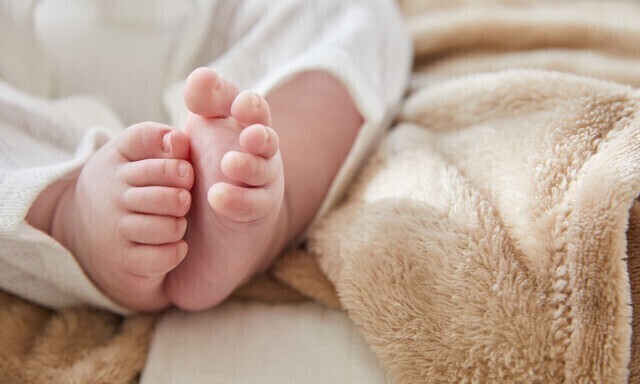hankyoreh
Links to other country sites 다른 나라 사이트 링크
1 in 5 unwed Korean women want child-free life, study shows

One in five unmarried South Korean women would prefer not to have children, recent survey results showed.
The Korea Population, Health and Welfare Association (KoPHWA) announced these findings Tuesday from its inaugural national population behavior survey.
Intended to investigate the relationship between South Korea’s low birth rate and the values and attitudes of people in their 20s to 40s, the survey was administered to 2,000 respondents nationwide between the ages of 20 and 44. The respondents consisted of four quadrants of 500 each, representing married and unmarried women and men.
According to the findings, 21.3% of unmarried women said they “prefer the state of not having children.” Among unmarried men, 13.7% said they did not want children — a rate lower than the one for unmarried women but over double those for married women (6.5%) and married men (5.1%).
The average desired number of children for respondents was 1.79 for married men, 1.71 for married women, 1.63 for unmarried men, and 1.43 for unmarried women.
Most respondents in the survey shared an attitude equating child-raising with costliness. Among those surveyed, 96% agreed with the statement, “Children cost a lot of money during their growing years.” This was the highest rate of agreement among seven perceptions related to children.
Among respondents, 88.8% agreed with the statement, “I am worried about the future my children will or would experience.”
But high rates of agreement were also observed for positive perceptions related to child-raising, with 92.3% agreeing that “parents experience psychological growth as they raise children.”
A gender gap was visible in terms of perceptions of the negative impact of child-raising on a woman’s social activities. Among unmarried respondents, 97.6% of women and 95.1% of men agreed with the statement, “Children cost a lot of money during their growing years,” but while 84.5% of unmarried women agreed that “children restrict a woman’s career,” only 66.2% of unmarried men felt the same.
A large gap was observed between unmarried women’s preferences in terms of child-raising approaches and the reality.
Unwed women overwhelmingly (77.2%) chose “both parents each using half” when it came to their ideal way of deciding who takes parental leave. But currently, the general approach to parental leave has mothers taking most of their leave and fathers taking only a little (16.9%), or mothers taking all of their leave and fathers taking none (2.1%).
In reality, men are gradually beginning to take parental leave, but the average length of their leave is generally shorter than for women. According to data released by the Ministry of Employment and Labor in January, of the total population who took parental leave in 2023 (131,087), men accounted for only 28.9% (37,885). Their average leave was 7.3 months, shorter than for women (9.6 months).
By Son Ji-min, staff reporter
Please direct questions or comments to [english@hani.co.kr]

Editorial・opinion
![[Column] Season 2 of special prosecutor probe may be coming to Korea soon [Column] Season 2 of special prosecutor probe may be coming to Korea soon](https://flexible.img.hani.co.kr/flexible/normal/500/300/imgdb/original/2024/0426/3317141030699447.jpg) [Column] Season 2 of special prosecutor probe may be coming to Korea soon
[Column] Season 2 of special prosecutor probe may be coming to Korea soon![[Column] Park Geun-hye déjà vu in Yoon Suk-yeol [Column] Park Geun-hye déjà vu in Yoon Suk-yeol](https://flexible.img.hani.co.kr/flexible/normal/500/300/imgdb/original/2024/0424/651713945113788.jpg) [Column] Park Geun-hye déjà vu in Yoon Suk-yeol
[Column] Park Geun-hye déjà vu in Yoon Suk-yeol- [Editorial] New weight of N. Korea’s nuclear threats makes dialogue all the more urgent
- [Guest essay] The real reason Korea’s new right wants to dub Rhee a founding father
- [Column] ‘Choson’: Is it time we start referring to N. Korea in its own terms?
- [Editorial] Japan’s rewriting of history with Korea has gone too far
- [Column] The president’s questionable capacity for dialogue
- [Column] Are chaebol firms just pizza pies for families to divvy up as they please?
- [Column] Has Korea, too, crossed the Rubicon on China?
- [Correspondent’s column] In Japan’s alliance with US, echoes of its past alliances with UK
Most viewed articles
- 1Is Japan about to snatch control of Line messenger from Korea’s Naver?
- 2‘We must say no’: Seoul defense chief on Korean, USFK involvement in hypothetical Taiwan crisis
- 3S. Korea “monitoring developments” after report of secret Chinese police station in Seoul
- 4The dream K-drama boyfriend stealing hearts and screens in Japan
- 5Division commander ordered troops to enter raging flood waters before Marine died, survivor says
- 6[Editorial] New weight of N. Korea’s nuclear threats makes dialogue all the more urgent
- 7No good, very bad game for Korea puts it out of Olympics for first time since 1988
- 8[Column] ‘Choson’: Is it time we start referring to N. Korea in its own terms?
- 9‘Weddingflation’ breaks the bank for Korean couples-to-be
- 10[Column] Season 2 of special prosecutor probe may be coming to Korea soon